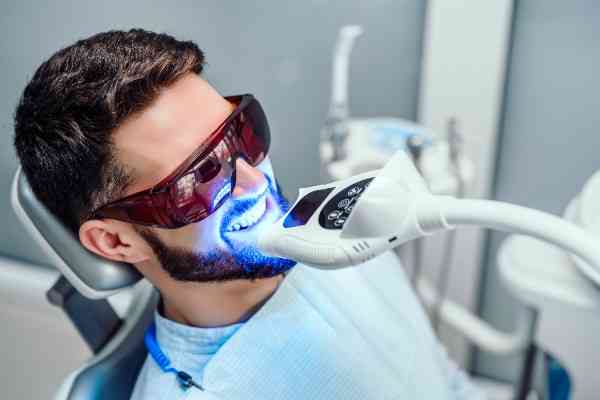A bright, white smile is something many of us aspire to, but achieving it isn’t always as simple as trying a few home remedies. From baking soda to lemon juice, natural solutions are often touted as quick fixes for teeth whitening. While some may provide temporary results, relying solely on these remedies can sometimes be ineffective or even harmful. In this article, we explore why natural remedies don’t always work for whitening and what you can do to achieve a healthier, brighter smile.
Understanding Teeth Discolouration
Teeth become discoloured for several reasons, including dietary habits, ageing, genetics, and oral hygiene routines. Foods and drinks such as coffee, tea, red wine, and berries can stain enamel over time. Tobacco use also significantly contributes to yellowing teeth. While natural remedies may remove surface stains, they often fail to tackle deeper discolouration caused by enamel thinning or dentin exposure.
Additionally, overuse of acidic natural substances like lemon juice or vinegar can erode enamel. This erosion may make teeth more sensitive and more prone to staining in the long run. For this reason, relying on natural methods exclusively is rarely a permanent solution.
Common Natural Remedies and Their Limitations
Many people turn to kitchen staples to brighten their teeth. Here’s a look at some common natural remedies and why they don’t always work:
- Baking Soda: Mildly abrasive, baking soda can help remove surface stains. However, excessive use can wear down enamel, increasing sensitivity.
- Lemon or Citrus Juice: While acidic juices may temporarily make teeth appear whiter, they can erode enamel if used frequently, ultimately worsening discolouration.
- Activated Charcoal: Popular for its “detoxifying” properties, activated charcoal may remove surface stains, but there is limited evidence supporting long-term effectiveness, and it can be abrasive.
The key takeaway is that while natural remedies may offer short-term improvements, they rarely address deeper causes of discolouration and may pose risks if misused.
Professional Teeth Whitening Options
For lasting results, professional teeth whitening is often the most reliable approach. Dentists use controlled concentrations of bleaching agents that safely penetrate enamel and dentin to remove deeper stains. Professional treatments can also be tailored to the individual’s needs, ensuring even results and minimal sensitivity.
Our teeth whitening Gloucester services offer personalised treatment plans to suit your lifestyle and dental health. Using modern techniques, we ensure effective results while maintaining enamel health. This professional approach reduces the risk of uneven whitening or enamel damage often seen with DIY methods.
Risks of DIY Whitening
- Enamel Damage: Frequent use of abrasive or acidic substances can weaken teeth.
- Uneven Results: Natural remedies rarely whiten teeth evenly, leading to patchy appearances.
- Increased Sensitivity: Overuse of home treatments can cause discomfort or pain.

Why Timing and Frequency Matter
Even natural whitening methods may produce results if used occasionally, but excessive application can have adverse effects. For instance, using lemon juice or baking soda daily can erode enamel over time. Professionals advise limiting whitening attempts and focusing on safer options that protect long-term dental health.
Maintaining oral hygiene is also crucial. Brushing twice a day, flossing daily, and regular dental check-ups prevent stains from forming and make professional whitening more effective. If stains are stubborn or caused by underlying issues, consulting a dentist is essential to avoid worsening the problem.
Situations Where Natural Remedies Fail
- Intrinsic Stains: Caused by medications, illness, or genetics; cannot be removed with surface treatments.
- Age-related Discolouration: Natural yellowing with age requires professional whitening for visible improvement.
- Post-Dental Work: Crowns, veneers, and fillings do not respond to natural bleaching methods.
Combining Natural and Professional Methods
Some people enjoy incorporating natural methods alongside professional treatments. For example, brushing gently with baking soda occasionally can help maintain results between dental visits. Drinking staining beverages through a straw or rinsing with water after meals also complements professional whitening without causing damage.
However, the primary focus should remain on professional guidance to ensure safe and effective whitening. Relying solely on home remedies may delay proper treatment and, in some cases, worsen sensitivity or enamel health.
Best Practices for Safe Whitening
- Consult a Dentist First: Discuss your goals and any underlying dental issues.
- Use Safe Products: Opt for dentist-approved whitening toothpaste or treatments.
- Maintain Oral Hygiene: Brushing, flossing, and regular dental visits maximise whitening results.
Understanding the Role of Diet in Teeth Whitening
What you eat and drink plays a significant role in the colour of your teeth. Even after professional whitening, consuming stain-causing foods and beverages can quickly reverse results. Dark sauces, coffee, tea, red wine, and brightly coloured berries are common culprits. Acidic foods, including citrus fruits and vinegar-based dressings, can also weaken enamel over time, making teeth more susceptible to staining.
Simple lifestyle adjustments, such as rinsing your mouth with water after meals or drinking beverages through a straw, can help maintain whitened teeth. Pairing these habits with professional treatments ensures long-lasting results without relying solely on home remedies.
When to Seek Professional Advice
If you notice persistent stains or discolouration that don’t respond to brushing or home remedies, it’s important to consult a dental professional. Ignoring these signs may lead to worsening dental issues or enamel damage. Regular check-ups allow dentists to identify underlying problems, such as enamel erosion or intrinsic stains, and provide targeted solutions.
We offer comprehensive assessments to determine the most effective whitening options for your teeth. In cases of unexpected pain, sensitivity, or sudden discolouration, contacting an emergency dentist in Gloucester ensures you receive immediate care, preventing further complications.

Conclusion
Natural remedies for teeth whitening can provide minor improvements, but they rarely offer the long-lasting results that professional treatments deliver. At EDG, we provide expert teeth whitening Gloucester services, combining safety and effectiveness to help you achieve a brighter smile. For urgent dental concerns or persistent staining, contacting an emergency dentist in Gloucester ensures prompt attention and prevents further damage. Choosing professional care is always the smartest way to maintain both the health and aesthetics of your teeth.
